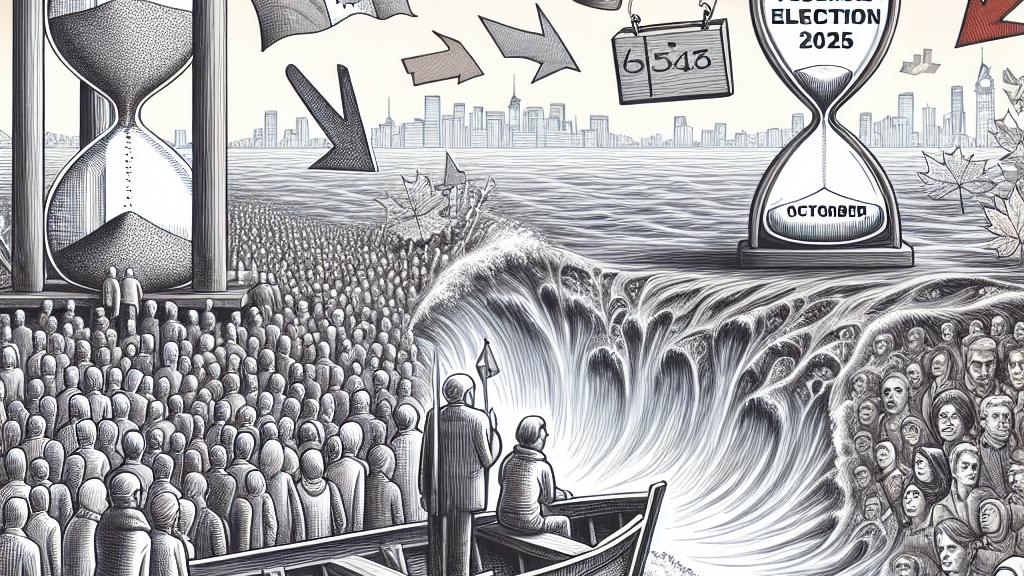Canada Tightens Temporary Worker and Student Rules Amid Political Pressure
Overview
- In a significant policy overhaul, Canada will cut study permits for foreign students to 437,000 in 2025, down from over 509,000 granted in 2023.
- Stricter eligibility criteria for work permits will now impact spouses of temporary foreign workers and students, raising alarms among advocacy groups.
- As the 2025 federal election approaches, the government aims to address public concerns by limiting the influx of temporary residents.

Context of Changes
The Canadian government is at a critical juncture, navigating complex political waters as it embarks on a new path in immigration policy. Recently, Prime Minister Justin Trudeau's administration announced a dramatic reduction in the number of study permits issued to international students, dropping from a staggering 509,390 in 2023 to a targeted 437,000 in 2025. This move is not just about numbers; it reflects growing anxiety among Canadians regarding the implications of rising temporary residency. With a federal election looming no later than October 2025, the government is under pressure to demonstrate responsiveness to public sentiment. Canadians are asking: Will these changes genuinely alleviate concerns, or will they alienate the very communities that contribute to the nation’s diversity?
Impacts on Temporary Workers
The tightening of rules concerning work permits—a critical issue for many families—has drawn significant attention. Under the new regulations, eligibility for work permits will be more stringent, severely impacting the spouses of international students and temporary foreign workers. For instance, spouses previously enjoyed the opportunity to work in Canada, bolstering family finances and stability. Sadly, many will now face uncertainty and potential economic strain. In a recent statement, Immigration Minister Marc Miller emphasized the importance of tightening the immigration system to curb fraudulent applications. However, critics, including advocates for migrant rights, argue that these cuts are not a panacea. They contend that truly addressing migrant exploitation requires pathways to permanent residency, thereby granting rights and protections that are currently insufficient. Failing to uphold such protections leaves many workers vulnerable, perpetuating a cycle of uncertainty.
Political and Public Reactions
As the government grapples with these changes, public sentiment towards immigration has shifted noticeably. Polls reveal an increasing number of Canadians expressing the belief that the nation is admitting too many immigrants, leading to a rise in anti-immigrant rhetoric. Advocates for these communities assert that blaming newcomers for rising housing costs and other societal challenges is both unfair and misleading. They argue these issues are deeply rooted in broader economic trends—not merely the result of increased immigration. As the Trudeau government maneuvers through this increasingly polarized landscape, the challenge becomes clear: to strike a balance between enforcing stricter immigration guidelines and preserving Canada’s long-held reputation as a bastion of welcome and inclusivity. The decisions made in the coming months will undoubtedly shape the future of Canadian immigration policy for years to come, as the nation grapples with its identity in a rapidly changing world.

Loading...